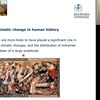evaluability
Transformative Experience and the Shark Problem
Philosophical Studies Abstract In her ground-breaking and highly influential book Transformative Experience, L.A. Paul makes two claims: (1) one cannot evaluate and compare certain experiential outcomes evaluate and compare certain intuitively horrible outcomes (e.g. being eaten alive by sharks) as bad and worse than certain other outcomes even if one cannot grasp what these intuitively horrible outcomes are like. We argue that the conjunction of these two claims leads to an implausible discontinuity in the evaluability of outcomes. One implication of positing such a discontinuity is that evaluative comparisons of outcomes will not be proportionally sensitive to variation in the underlying features of these outcomes. This puts pressure on Paul to abandon either (1) or (2). But (1) is central to her view and (2) is very hard to deny. We call this the Shark Problem.
The transparency imperative: The need for model documentation for engaging with public policy following the EU AI Act
Conference paper, Annual Modeling and Simulation Conference (ANNSIM'25) Abstract The application of Agent-Based Modeling and Simulation (ABMS) has few established guidelines and oftensuffers from insuffdifferent types of model documentation in light of the European Union’s AI Act (AI Act). Our analysisreveals that best practices are often implemented together but ultimately reinforce the pre-existing viewthat ABMS frequently lacks adequate model documentation. This deficiency hinders evaluability, makingit difficult to conduct quality assurance prior to application and meaningful evaluation post application.We propose a framework that highlights the importance of different types of model documentation and theattributes they enable, which are valuable to both modelers and policy actors, albeit for different reasons.The AI Act provides a valuable opportunity to improve model documentation. By proactively developingand establishing guidelines, we can stay ahead of emerging legal requirements.

Fredrik Charpentier Ljungqvist: Impacts of past climate variability – lessons for the 21st century
The talk summarizes key findings of state-of-the-art research on how climate variability and change have affected different aspects of human history in medieval and early modern Europe (c. 700–1815 CE
Fredrik Charpentier Ljungqvist: Impacts of past climate variability – lessons for the 21st century
Place: Institute for Futures Studies, Holländargatan 13, Stockholm or onlineREGISTERResearch seminar with Fredrik Charpentier Ljungqvist, Professor of History.ABSTRACT The talk will start with summaris

The more things change, the more they stay the same. A follow up of participants in Social Fund financed projects
Research report 2014/5, 77 p. Every year in Sweden, over one hundred thousand job-seekers are assigned to local labour market policy measures, of which a large proportion are financed with money from t
Recent Work on Reflective Equilibrium and Method in Ethics
Philosophy Compass 13 (6), 2018. DOI:10.1111/phc3.12493. Abstract The idea of reflective equilibrium (IRE) remains the most popular approach to questions about method in ethics, despite the masses of cr
A Life‐Course Analysis of Geographical Distance to Siblings, Parents, and Grandparents in Sweden
Population, Space and Place, VolumLäe 23, Issue 3, e2020, doi.org/10.1002/psp.2020 Abstract This study makes a contribution to the demography and geography of kinship by studying how internal migration
Agent-based social simulations for health crises response: utilising the everyday digital health perspective
Frontiers in Public Health Abstract There is increasing recognition of the role that artificial intelligence (AI) systems can play in managing health crises. One such approach, which allows for analysin
Women's experience of child death over the life course: A global demographic perspective
AbstractThe death of a child affects the well-being of parents and families worldwide but very little is known about the scale of this phenomenon. We provide the first global overview of parental bere
Completed: The home care service interviews residents and relatives – two-way communication with vulnerable groups
The spread of COVID-19 has been high among the elderly and risk groups. This study aims to develop methods for knowledge acquisition, focusing on vulnerable groups.








